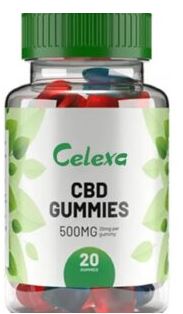You know the feeling of being a tightly wound spring, ready to snap at the slightest touch? That tension isn’t just uncomfortable, it can seep into every aspect of your life, from work to relationships. You’re likely on the lookout for something that can ease the pressure without leaving you feeling numb or disconnected. Celexa CBD may offer you a glimmer of hope, representing a blend of modern science and natural ingredients aimed at soothing your frazzled nerves. It’s important to approach this topic with a level head, considering both the potential benefits and necessary precautions. As you contemplate whether this product could be the key to a more balanced life, consider the complexities surrounding the use of CBD products in conjunction with traditional medications, and how this combination might affect your journey toward wellness.
Key Takeaways
- Combining Celexa with CBD can increase drug levels in the body due to potential interactions.
- Inhaled CBD, especially through smoking, can bypass liver metabolism and affect drug concentrations in the bloodstream.
- Consultation with a healthcare provider before using Celexa CBD is crucial for managing potential interactions and dosages effectively.
- Monitoring medication levels and potential side effects is essential when using CBD with specific medications like Celexa.
CBD and Citalopram Interaction

When considering the use of Celexa CBD, it’s crucial to be aware that combining CBD with Citalopram may lead to increased levels of the antidepressant in your body, potentially causing serious side effects. The interaction between these substances is not fully understood, but it’s known that both CBD and Citalopram are metabolized by the same liver enzymes. This could mean that when taken together, they compete for these enzymes, leading to higher concentrations of Citalopram than intended, which could amplify both the therapeutic effects and the risk of adverse reactions.
It’s important to note that while Celexa CBD Gummies may offer the benefits of stress reduction and mood enhancement, they should be approached with caution if you’re currently on Citalopram or any other antidepressants. The potential for serious side effects underscores the necessity of consulting with a healthcare provider before introducing Celexa CBD into your regimen.
When evaluating the Celexa CBD cost or Celexa CBD price, you must also consider the potential costs to your health if these substances interact poorly. While the price of these products may seem reasonable, no amount of savings can justify the risk of harmful effects from a dangerous drug interaction.
Smoking CBD While on Antidepressants
If you’re considering smoking CBD to manage your mental health while taking antidepressants, it’s essential to understand that this method can lead to increased drug levels in your bloodstream and may result in severe side effects. The interaction between inhaled CBD and antidepressants is complex and not fully understood, but evidence suggests that combining these substances could alter the pharmacokinetics of your medication.
CBD, when smoked, bypasses the liver and enters your bloodstream directly. This route of administration avoids the first-pass metabolism, which typically helps to regulate drug levels in your system. By skipping this process, you might inadvertently increase the concentration of antidepressants in your blood, potentially intensifying their effects and associated risks.
Moreover, CBD has been shown to inhibit the activity of certain enzymes in the liver, particularly cytochrome P450 enzymes, which are responsible for metabolizing many pharmaceuticals, including common antidepressants. This inhibition can lead to a slower breakdown of these medications, further raising their levels and prolonging their presence in your body.
The clinical implications of such interactions are significant. You could experience exacerbated side effects or even toxicity from your antidepressant medication. These could range from mild symptoms like nausea and drowsiness to more serious issues such as serotonin syndrome, a life-threatening condition.
Given these risks, it’s advisable to consult your healthcare provider before introducing CBD into your regimen. With only 19% of individuals discussing CBD use with their doctor, many are potentially exposing themselves to harmful interactions. Your doctor can provide guidance tailored to your specific circumstances, considering the type of antidepressant you’re taking and your overall health profile. This precaution is critical to ensure your safety and the effectiveness of your treatment.
Recommended CBD Products for Anxiety

Selecting the right CBD product for anxiety management requires careful consideration of its form, dosage, and potential interactions with other medications you may be taking. It’s imperative to approach this selection with a clinical mindset, analyzing the available evidence to make an informed choice.
When evaluating CBD products, you must first consider the mode of delivery. Inhaled CBD products, such as vapes, bypass the liver and may have fewer interactions with antidepressants, but they also come with their own risks and should be considered cautiously. Sublingual tinctures or oils provide a more direct route into the bloodstream and allow for more precise dosing.
Dosage is another crucial factor. The right dosage of CBD can vary widely from person to person, and it’s often recommended to start with a lower dose and gradually increase as needed. The goal is to find the minimum effective dose that provides anxiety relief without causing undesirable side effects.
It’s also essential to be aware of how CBD might interact with other medications. For example, CBD may influence the metabolism of drugs like Levothyroxine or diazepam, necessitating a discussion with your healthcare provider. They can help you navigate potential interactions and adjust dosages accordingly.
CBD and Sciatica Nerve Pain Relief
Exploring the potential of CBD for sciatica nerve pain relief, research indicates that its anti-inflammatory and analgesic properties may offer significant benefits. If you’re struggling with the discomfort associated with sciatica, you might be considering CBD as a complementary approach to your pain management strategy. It’s important to understand how CBD could potentially assist in alleviating the symptoms of this condition.
Here’s what current research suggests about CBD and sciatica nerve pain relief:
- Anti-inflammatory Action: CBD has been shown to reduce inflammation, which is a key contributor to sciatica pain. By potentially lowering inflammation around the sciatic nerve, CBD could help to ease pain and swelling.
- Pain Relief: The analgesic properties of CBD may provide respite from chronic pain by influencing endocannabinoid receptor activity and interacting with neurotransmitters that signal pain.
- Localized Treatment: Topical CBD products can be applied directly to the affected area, offering targeted relief without systemic effects. This localized approach can be particularly useful for sciatic nerve pain.
- Safety Profile: Compared to conventional pain medications, CBD is generally well-tolerated with a lower risk of side effects. However, it’s crucial to consult with your healthcare provider before incorporating CBD into your regimen.
As you navigate your options, consider that evidence-based, analytical, and clinical assessments underscore the importance of individualized treatment plans. CBD’s efficacy can vary based on factors such as the source and quality of the product, dosage, and individual response. While the therapeutic landscape for CBD continues to evolve, incorporating it under medical guidance could be a prudent step towards managing your sciatica nerve pain effectively.
CBD Oil and Diazepam Usage

When considering the use of CBD oil in conjunction with diazepam, it’s vital to understand how the interaction between these substances can significantly impact their effectiveness and safety profile. Both CBD and diazepam work in your body to promote relaxation and reduce anxiety. However, they do so through different mechanisms, which can lead to complex interactions.
CBD may influence how your body metabolizes diazepam, potentially increasing its concentration in your bloodstream. This could enhance the sedative effects of diazepam, but also its side effects. It’s critical to approach this combination with careful consideration, always under the guidance of a healthcare professional.
Here’s a table to give you a clearer picture of what you need to know:
| CBD Oil | Diazepam |
|---|---|
| May inhibit the metabolism of certain drugs | A benzodiazepine used for anxiety and seizure disorders |
| Can enhance or mitigate the effects of other medications | Risk of increased sedation and drowsiness when combined with other CNS depressants |
Evidence suggests that CBD could either inhibit or induce the enzymes involved in drug metabolism, such as the cytochrome P450 system. This is particularly important because diazepam is metabolized by these enzymes. The inhibition could lead to higher levels of diazepam, increasing the risk of drowsiness, sedation, or even more serious side effects.
Always consult with your doctor before introducing CBD into your regimen, especially if you’re taking diazepam. They can assess whether CBD might offer benefits without compromising the safe usage of diazepam, monitor for adverse reactions, and adjust dosages accordingly. Remember, while CBD is generally well-tolerated, its interactions with other medications like diazepam warrant a cautious and informed approach.
CBD Dosage Calculation Guide
Understanding the intricate interactions between CBD and medications like diazepam underscores the importance of precise CBD dosage calculations to ensure safety and efficacy in its use. When considering Celexa CBD-Stress Reducer and Mood Enhancer, it’s crucial to determine the right amount of CBD that works for you while minimizing the risk of adverse reactions.
Here’s a clinical guide to help you calculate your CBD dosage:
- Body Weight and Composition: Your body mass and composition are pivotal in determining an appropriate starting dose. Typically, individuals with more body mass require a higher dose to experience the same effects as someone with less body mass.
- Product Potency: The concentration of CBD in a product is measured in milligrams (mg). Understanding the potency is necessary to calculate the dosage accurately. For Celexa CBD, you’ll need to know how many milligrams of CBD are in each serving.
- Desired Effects: The severity of the condition you’re trying to alleviate plays a significant role in dosage. Higher doses may be necessary for more acute stress or mood imbalances, while lower doses may suffice for mild symptoms.
- Tolerance and Individual Response: Your unique physiology can affect how you respond to CBD. As your body becomes accustomed to CBD, you might need to adjust the dose. Start with a low dose and gradually increase until you find the therapeutic window that provides the desired benefits without unwanted side effects.
It’s essential to consult with a healthcare professional before starting any new supplement regimen, especially if you’re currently taking other medications like diazepam. They can provide personalized advice based on your health history and current medications. Monitoring your response and adjusting your dose as needed is key to safely incorporating Celexa CBD Gummies into your wellness routine.
CBD Oil and Thyroxine Interaction

If you’re taking thyroid medication such as Levothyroxine or Thyroxine, it’s critical to be aware of how CBD oil might affect the efficacy and concentration of these drugs. Both substances are metabolized by enzymes in the liver, and there is a possibility that CBD could influence the metabolism of your thyroid medication. This could alter the levels of the drug in your bloodstream, either reducing its effectiveness or potentially leading to adverse effects.
The research on the interaction between CBD and thyroid medications is still in its infancy, but the potential for a pharmacokinetic interaction exists. Pharmacokinetic interactions occur when one substance affects the absorption, distribution, metabolism, or excretion of another. Since CBD is known to inhibit certain enzymes, such as cytochrome P450, which are involved in drug metabolism, this could lead to altered levels of thyroid hormones in your body.
Here’s a simple table summarizing the potential interactions:
| Factor | CBD Oil | Thyroid Medication |
|---|---|---|
| Metabolism | May inhibit enzymes | Metabolized by enzymes |
| Blood Concentration | Could increase or decrease | Should be stable |
| Efficacy | Potential alteration | Could be reduced or enhanced |
Before adding CBD oil to your regimen, it’s essential to consult with a healthcare provider to evaluate the potential risks and benefits. They can help you understand the implications and may adjust your medication dosage accordingly, or monitor your thyroid hormone levels more closely to ensure that they remain within the therapeutic range.
Amitriptyline and CBD Oil Combination
Combining amitriptyline, a tricyclic antidepressant, with CBD oil may lead to complex interactions that require careful consideration by healthcare professionals. You might be considering this combination to enhance your mood or manage stress, but it’s crucial to understand the potential implications. Here’s what you need to know:
- Pharmacokinetic Interactions: Amitriptyline is metabolized by liver enzymes that CBD may inhibit, potentially increasing amitriptyline levels and leading to enhanced effects or side effects.
- Serotonergic Effects: Both substances can affect serotonin levels, increasing the risk of serotonin syndrome, a potentially life-threatening condition characterized by symptoms like confusion, rapid heart rate, and high blood pressure.
- Central Nervous System Depression: CBD has a calming effect, which may enhance the sedative properties of amitriptyline, increasing drowsiness and impairing your ability to perform tasks that require alertness.
- Clinical Monitoring: If you’re determined to use both, healthcare professionals should closely monitor for adverse effects, adjusting dosages as necessary to mitigate risks.
It’s important to remember that while CBD is often touted for its safety profile and non-psychoactive properties, it still has pharmacological activity that can interact with other medications. Amitriptyline, with its own set of side effects and interactions, can become more problematic when combined with other substances.
As a patient, you should always consult with your healthcare provider before introducing any new treatments into your regimen, especially when they involve a complex medication like amitriptyline. While the quest for enhanced mood and stress relief is valid, it’s not worth risking your health without professional guidance. Your provider can help you weigh the benefits against the risks, ensuring your treatment plan is safe and effective.
Consulting a Doctor Before CBD Use

Before using Celexa CBD, it’s essential to consult with your doctor, particularly if you’re taking antidepressants, to navigate the complex landscape of potential drug interactions. The interplay between CBD and other medications can be intricate, and your healthcare provider can help you understand the possible risks and benefits for your specific situation.
Your doctor’s guidance is rooted in an understanding of pharmacodynamics and pharmacokinetics. They will consider factors such as your current medications, dosages, and your overall health profile before advising on CBD use. The goal is to ensure that CBD does not negatively interfere with the efficacy of your antidepressants or precipitate harmful side effects.
To give you a clearer picture, let’s look at a table that outlines potential concerns when combining CBD with antidepressants:
| Potential Interaction | Consideration |
|---|---|
| Altered Concentration | CBD may increase or decrease the levels of antidepressants in the blood, potentially impacting effectiveness or causing toxicity. |
| Side Effect Profile | The combination might exacerbate side effects such as drowsiness or agitation. |
| Serotonin Syndrome | Rare but serious, combining CBD with certain antidepressants could increase the risk of serotonin syndrome. |
| Withdrawal Symptoms | Abrupt changes in CBD or antidepressant use might trigger withdrawal symptoms, requiring medical supervision. |
Frequently Asked Questions
What Supplements Should I Not Take With Celexa CBD?
You should be cautious with supplements when taking Celexa, as several could interact negatively. Avoid St. John’s Wort, tryptophan, and SAMe, which may amplify serotonergic effects, increasing the risk of serotonin syndrome. Also, steer clear of aspirin, NSAIDs, and anticoagulants that could raise bleeding risks. Always consult your healthcare provider before adding any new supplements to your regimen to ensure safety and prevent adverse interactions.
What Should You Avoid on Celexa?
You should avoid alcohol, NSAIDs, and other antidepressants while on Celexa, as they can increase the risk of side effects or lead to a dangerous condition called serotonin syndrome. It’s crucial to monitor your intake of these substances and consult your doctor for personalized advice. Remember, each medication can interact differently, and what’s safe for one person may not be for another. Always prioritize your safety when considering additional supplements or medications.
What Happens if You Take CBD With Antidepressants?
If you take CBD with antidepressants, you’re risking unpredictable interactions. The compounds may compete for liver enzymes, potentially altering drug levels in your blood and reducing efficacy or increasing side effects. Inhaling CBD can bypass this issue, but the overall impact remains uncertain. It’s crucial to consult with your healthcare provider before mixing these substances to ensure your safety and the effectiveness of your treatment.


